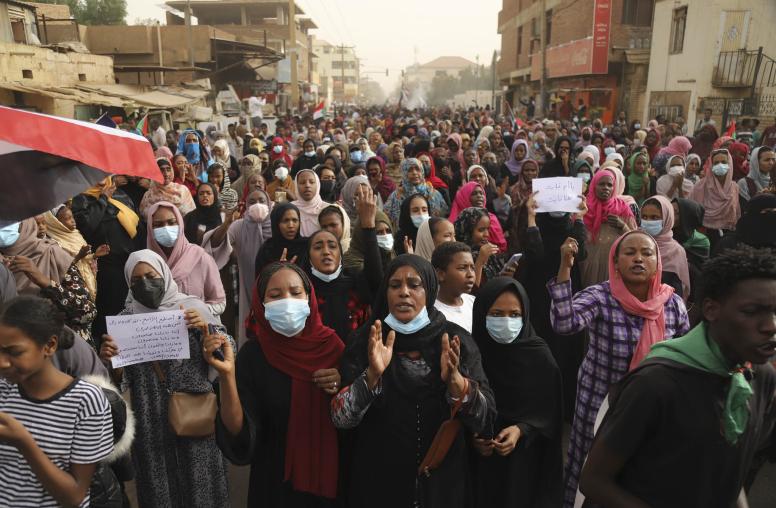100 Years of Quiet Diplomacy, Nonviolent Resistance, and Peacebuilding
Participants will learn from leaders of the American Friends Service Committee community about specific moments, campaigns, and achievements in Quaker history centered on themes of movement building, addressing root causes of conflict, and the power of everyday people to create change.

Course Overview
Over the last 100 years AFSC has worked throughout the United States on domestic issues including protection of civil and political rights, nonviolence resistance to war, and advocating for a just immigration policy. AFSC international efforts range from people-to-people exchanges with North Korea to youth engagement in Guatemala, and beyond. Whether the focus has been domestic or international, AFSC’s commitment to peace and justice has remained constant. This collection provides an in-depth look at 100 years of experience.
The AFSC and USIP partnered to create this collection of stories and perspectives from AFSC’s 100 years of experience working for peace. The collection highlights for online learners how many of the same peacebuilding skills that USIP seeks to advance, such as mediation, nonviolent action, and dialogue are key to AFSC’s efforts around the globe. While AFSC and USIP work in similar global contexts, the experiences and opinions shared in this collection are unique to AFSC and do not necessarily reflect those of USIP.
Please note this course does not offer a certificate.
Agenda
Chapter 1 - The Quakers, the Early Years, and the Origins of AFSC
Chapter 1 introduces Quakerism, a religion that emerged from a time of social upheaval in England in the 1600s, and shares examples of how Quakers put their belief into actions.
Chapter 2 - From Protest to Politics
This chapter describes the origins of AFSC and its long legacy of peacefully resisting violence and war.
Chapter 3 - The Power of Nonviolent Resistance
This chapter highlights a range of nonviolent resistance undertaken to oppose unjust laws in the United States and beyond, including in the face of racial and structural inequality.
Chapter 4 - Building Mass Movements for Change
This chapter looks at powerful movements in the United States and across borders between the 1970s and the 1990s, that built on lessons from previous movements.
Chapter 5 - Meeting the Challenge of Post-Cold War Conflicts (1995-2015)
This chapter provides context for the conflicts and uncertainty facing the world after the Cold War, describes what peacebuilding looks like in conflict affected areas, and details the human costs of war.
Chapter 6 - The Way Forward: Shared Security
This chapter puts forward a vision for shared security, providing examples of what this means in practice and policy.
Featured Experts
- Arnie Alpert, New Hampshire Program Coordinator at American Friends Service Committee
- Phil Berryman, Quaker International Affairs Representatives, (Central America) 1976 – 81
- Angie Berryman, Quaker International Affairs Representatives, (Central America) 1976 - 80
- Miriam Camas, Project Coordinator, Guatemala at American Friends Service Committee
- Max Carter, Retired Campus Ministry Coordinator at Gilford College
- Jacqui Chagnon, Former Representative, Laos at American Friends Service Committee
- Shan Cretin, General Secretary at American Friends Service Committee
- Jerry Herman, Former Africa Peacebuilding Director at American Friends Service Committee
- Raed Jarrar, Government Relations Manager at American Friends Service Committee
- Robin Aura Kengis, Director, Office of Public Policy and Advocacy at American Friends Service Committee
- Kerri Kennedy, Associate General Secretary for International Programs at American Friends Service Committee
- Betty Medsger, Author, The Burglary: The Discovery of J. Edgar Hoover’s Secret FBI
- Bridget Moix, U.S Senior Representative at Peace Direct
- Ed Nakawatase, Former Representative for Native American Affairs at American Friends Service Committee
- Monica Portilla, Regional Program Officer, Guatemala at American Friends Service Committee
- Andrew Tomlinson, Director at Quaker United Nations Office
- Sonia Tuma, West Regional Director at American Friends Service Committee


